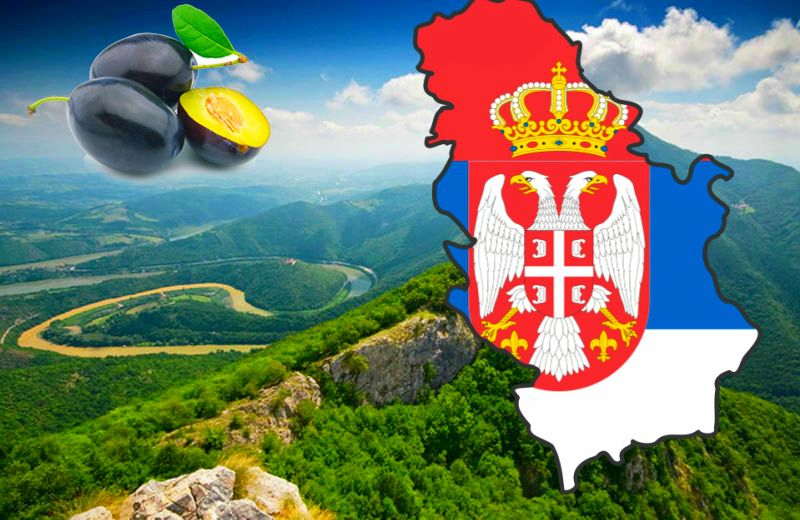
There are numerous reasons why you might decide for moving to Serbia. Such a step has numerous consequences. These consequences are strictly legal, right down to tax consequences, property consequences and numerous others. To help you make the best decision for yourself, we have put together this text that lists the advantages of moving to Serbia.
The following topics about moving to Serbia have been discussed in this text:
- Crime rate;
- Demography, geography and climate;
- Politics;
- International free trade agreements;
- Cost of living;
- German language;
low crime rate as a reason to move in Serbia
According to the latest report “Numbeo Crime Index by Country 2023”, Serbia is one of the European countries with an average crime rate, but in a better position in terms of crime rate than, for example Sweden, France, Ireland, Italy, Belgium, Greece and UK. With 38,48 points, Serbia is just below Germany (38,04 points), With 38.48 points, Serbia is just behind Germany (38.04 points), which is a good reason for moving to Serbia.
Demography, Geography and Climate
The estimated population of the Republic of Serbia is about 6,8 million people. By gender, 51,3% are women (3.561.503) and 48,7% are men (3.383.732). 90% of the population of Serbia are Christians (85% are Ortodox and 5% are Catholics). Country is located approximately halfway between Germany and Turkey, Russia and Spain, Poland and Greece. Moving to Serbia also has logistics advanteges. Accordingly, Serbia is an important transportation and logistics hub for business from Asia, the Middle East and Europe. There are three international airports in Serbia. The largest airport is called Nikola Tesla, which is located in Belgrade.
The number of sunny hours in Belgrade is 2.112 annually and is 500 hours higher than the number of sunny hours in Berlin. The average temperature in July is 32 degrees. Sometimes hot air masses from Africa can reach the country, and in these cases the temperature of even 40 degrees might be reached. However, usually these periods do not last long. The average temperature in January and February is 0 degrees.
Moving to Serbia is increasingly interesting because of climate change. In Serbia, there are clear boundaries for all four seasons.
Politics
Speaking of politics, Serbia is a candidate for membership in the European Union, which can be an important reason for moving to Serbia. The state system of Serbia is a republic, and its government is democratically elected. Liberal freedoms in Serbia are constantly evolving. LBGT+ marriages are not legalized, although LBGBT+ parade is held each year.
On the other hand, Serbia represents a business bridge to Russia and China, which can be a good reason for moving to Serbia in terms of conducting business activities.
International Free Trade Agreements
Manufacturers from Serbia have a privileged status on the world market of about 1,3 billion consumers of their products. In addition to the CEFTA agreement and cooperation with Turkey, Serbia has free trade agreements with EU and for a certain number of goods with EFTA (Norway, UK, Japan and Australia), and from October 2023 with China. Serbia is the only country outside the former USSR that has signed a free trade agreement with Russia, Belarus and Kazakhstan.
Therefore, moving to Serbia can be for economic reasons. That is, moving to Serbia can refer to moving business to Serbia. Especially if we take into account the lower tax rates compared to Western and Central Europe. Serbia has concluded 140+ double taxation agreements, including with Germany, Austria and Switzerland.
Costs of living
For someone who is moving to Serbia, information about the minimum consumer basket of EUR 550 might be precious. Minimum salary is around EUR 450, and average salary about EUR 850. Below you will find the costs of living in Serbia:
- Electricity, heating, cooling, water, garbage for 85m2 apartment – 400 euros;
- Internet (unlimited data, cable / ADSL) – 40 euros;
- Fitness club, monthly fee for one adult – 40 euros;
- Kindergarden, full day, monthly – free;
- Price per square meter for buying a new apartment in Belgrade – 3.500 euros;
- Cab 1km (normal fare) – 2 euros;
- Cigarettes one pack – from 3 euros.
German language
German as an optional foreign language can be learned in Serbia already in elementary school. German language is taught as a foreign language in 1.659 primary and secondary schools. In Vojvodina, in the north of the country, there is a German minority (Donauschwaben). There are several organizations there with the aim of preserving and strengthening the culture and identity of the Danube Swabians:
Entering Serbia
Serbia’s visa regime is one of the more liberal ones. According to numerous bilateral and multilateral agreements, many foreign citizens are allowed to enter Serbia without a visa. Stay in Serbia without a visa is limited to 90 days within 180 days from the day of first entry into Serbia. If foreign citizens wish to stay or work in Serbia for more than 90 days, they must obtain a temporary residence permit from the Ministry of Interior.
Visa requirements for foreigners entering Serbia can be checked at the following link.
Moving to serbia – taxes
If the foreign citizens work in Serbia and thus earn income, they are liable to pay income tax in Serbia. In case the tax and/or social contributions were paid in another state, the taxpayer can exercise the rights under double taxation or social treaties.
Some of the most common types of taxes in Serbia are:
- Gift and inheritance tax (1,5 % – 2,5 %);
- Payroll tax (10% of net income, the total burden of contributions is about 43 percent of net income);
- Income tax (for other income 20%);
- Annual tax (10% and 15%);
- Corporate income tax (15%);
- Dividend tax (15%);
- Flat tax (200 euros – 500 euros).